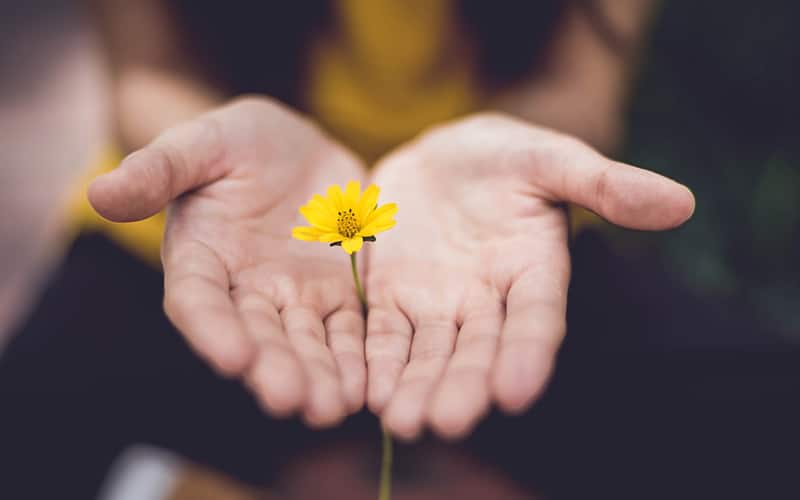The Transforming Power of Gratitude and Generosity
A simple attitude change can make a surprising difference to our mental health and wellbeing, while also inclining us toward greater generosity. What is it? Gratitude!
In 2017, $203.6 billion was spent on mental health sessions. That number is projected to continue growing to a whopping $230 billion. Those services range from simple to complex.
Joel Wong and Joshua Brown, writing for Greater Good Magazine, note that perhaps the simplest treatment with the greatest benefit in the shortest amount of time is, rather surprisingly, the practice of gratitude.
Wong and Brown undertook a study of nearly 300 people seeking mental health counseling. The majority struggled with issues related to depression and anxiety. Three control groups were established. While all groups received counseling, one group was asked to write a letter of gratitude to another person each week for three weeks. A second group was asked to journal their deepest thoughts about their negative experiences. The third group did not do any additional activity.
The results? Those who wrote gratitude letters reported significantly better mental health four weeks and 12 weeks after completing the exercise.
Wong and Brown listed four insights from his gratitude study:
- Gratitude unshackles us from toxic emotions.
- Gratitude helps even if you don’t share it.
- The benefits of gratitude occur over time. It’s like making deposits in your mental health bank.
- Gratitude leaves lasting effects on the brain. When people feel gratitude, they actually have distinct brain activity from those who don’t.
Gratitude and generosity
Another finding: grateful people are generous people. In addition to greater mental health, Wong and Brown discovered a key correlation between gratitude and greater generosity. Those people who experienced gratitude experienced distinct brain activity from those motivated by guilt.
People who experienced gratitude gave more money to a cause than those motivated by guilt. Specifically, that “gratitude giving” produced greater neural sensitivity in the medial prefrontal cortex, an area of the brain associated with learning and decision making.
Gratitude, not guilt, produces greater generosity. Want proof? Is it any wonder that typically the recipients of the largest gifts are hospitals and universities? Why? Because someone received treatment or got a degree and was grateful for what they received.
I know of a marriage ministry that helped save a couple’s marriage. That same couple made the largest gift ever to that ministry. Why? Gratitude.
Gratitude begets generosity. This is a truth those working with donors need to take to heart. How can you help to cultivate grateful givers instead of guilt-driven givers? How can you develop a culture of gratitude in your own organization?
Gratitude brings so many benefits to those who embrace it as a key value and practice. (Check out this post for an admittedly non-religious summary of 31 benefits of gratitude—it’s an impressive array!)
Viewing the world from a grateful perspective brings wholeness and helps shape us into generous people. Beyond all the benefits, gratitude is fundamentally a fitting response to all that our God has given us, from the generosity of creation to the grace of Christ’s cross. Take some time and cultivate heartfelt gratitude!
Photo by Lina Trochez on Unsplash
Share this Post
Published February 8, 2019
Topics: Generosity

